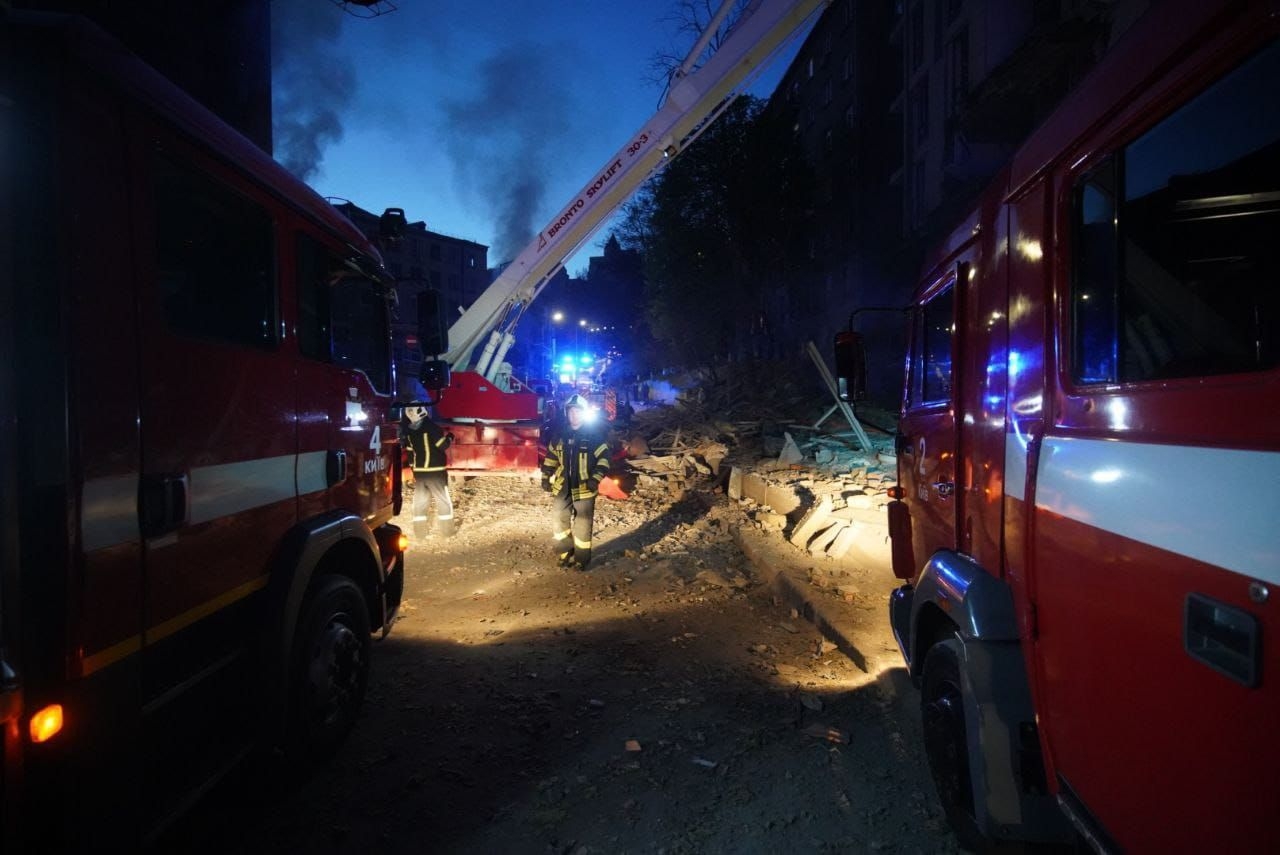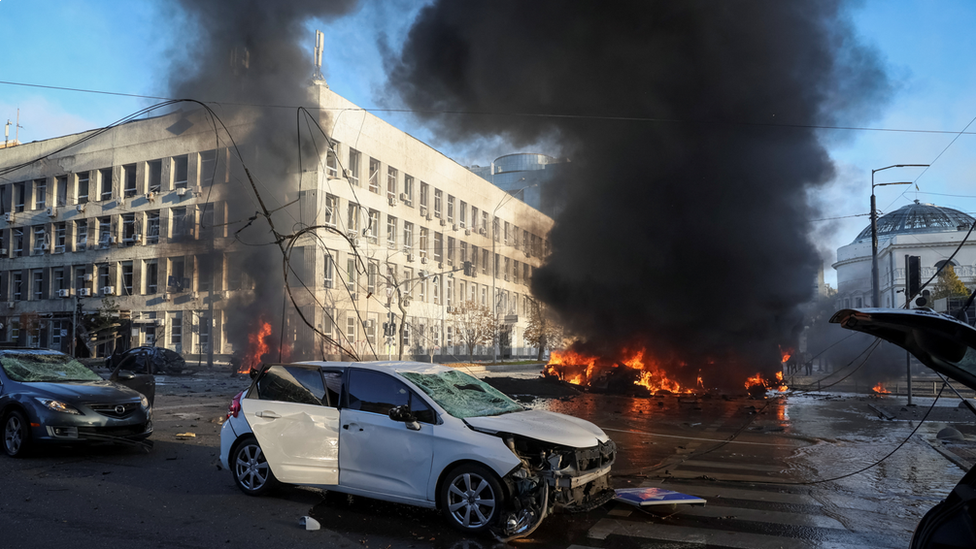In the pre-dawn hours of Tuesday, the skyline of Ukraine’s capital, Kyiv, was set ablaze by flashes of light as Russia initiated a remarkable air bombardment. The deafening sounds of Ukrainian air defenses intercepting Russian missiles and the impact of explosives on the city were indistinguishable for many locals, underscoring the severity of the assault.
Liudmyla Kravchenko, a resident of Kyiv, along with her spouse and two children, spent most of the night confined to their hallway, the safest part of their home. Given the lack of a nearby bomb shelter or an easily accessible metro station, the family had no other option. Kravchenko, speaking to CNN, shared that while they don’t always take cover during air raid sirens, the previous night was an exception.
As the Kravchenko family sought safety, Ukraine’s air defense was operating at full capacity. Tymofiy Mylovanov, a presidential advisor and leader of the Ukrainian School of Economics, shared on Twitter his observation of multiple missile launches from his balcony. Even with the barrage coming in fast, he noted there was no opportunity to reach a shelter.
Serhiy Popko, who oversees Kyiv’s military administration, verified via a Telegram message that Tuesday’s missile strike was the eighth on the Ukrainian capital in May. He characterized the strike as unparalleled in terms of its intensity, with a record number of missiles deployed in the quickest possible time.
However, Popko assured that the majority of Russian weaponry was intercepted and neutralized by Ukraine’s defense systems. Kyiv’s Mayor, Vitali Klitschko, confirmed minor damage on the ground, citing only a structure and a few vehicles that were ignited by falling fragments in one part of the city.
General Valerii Zaluzhnyi, Chief of the Ukrainian Armed Forces, furnished specifics of the assault on Twitter, enumerating the different kinds of missiles and drones deployed by Russia from several directions. Despite Russia’s claim of obliterating a US-made Patriot air defense system in Kyiv, no corroborative evidence exists to back this.

On the other hand, Ukraine’s Defense Minister, Oleksii Reznikov, hailed Tuesday as a remarkable triumph for the Ukrainian Air Forces, asserting that all six Kinzhal missiles were intercepted. He expressed gratitude to the Air Force personnel and allied nations for their role in securing Ukraine’s and Europe’s airspace.
Oleksandr Kravets, a Kyiv resident, commended the air defense forces as “true heroes”. He noted that their effectiveness in intercepting modern Russian missiles, such as the Kinzhal, has increased notably since Ukraine acquired at least two US-made Patriot missile defense systems, one from Germany and one from the US.
Yet, Ukraine has been sounding the alarm about dwindling ammunition reserves, a concern for the nation’s defense capabilities, especially in the wake of what Mayor Klitschko termed Russia’s “most extensive” drone attack on Kyiv the previous week.
Meanwhile, Ukrainian Defense Intelligence spokesperson Andriy Yusov reported that Russian forces seem to lack the capability for large-scale offensives and are running short of certain missiles, like the Kalibr. Still, he cautioned that Moscow possesses sufficient missiles to maintain its current frequency of air raids.
Amid the ceaseless attacks, Ukrainian President Volodymyr Zelensky, following a discussion with British Prime Minister Rishi Sunak, disclosed that Kyiv is bracing for “significant counteroffensive measures”. The Ukrainian military has reported progress in certain sectors near the beleaguered eastern city of Bakhmut, yet the specifics about the counteroffensive’s timeline remain unclear.
Despite the uncertainty, the spirit of resilience remains strong among Ukrainians, steadfast in the face of adversity. The air defense forces, in particular, are showing an unyielding resolve to protect their nation’s sovereignty, even while grappling with the formidable task of dealing with an increasingly belligerent adversary.
©world-news.biz
